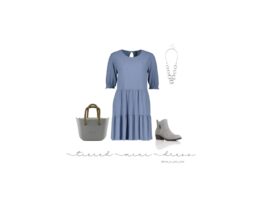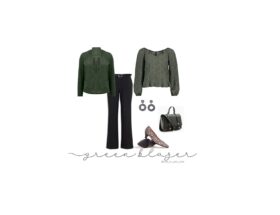
Conscious Fashion
As a personal stylist, I believe it’s my duty to help my clients not only look good but also feel good about their choices. In recent years, more people have become aware of how the fashion industry affects the environment. Because of this, many are turning to conscious fashion. So, what is conscious fashion, and why is it important?
Conscious fashion is a movement aimed at reducing the impact of the fashion industry on the environment and society. It’s about making careful and informed choices about what we wear and where we shop. This means choosing clothes made from sustainable materials, produced in an ethical and responsible way, and designed to last.
There are many reasons why conscious fashion matters. Firstly, the fashion industry is one of the biggest polluters in the world. Making clothes needs a lot of water, energy, and resources and often uses harmful chemicals. This affects the environment by causing air and water pollution, deforestation, and soil damage.
Secondly, the fashion industry is known for poor working conditions. Many garment workers are paid low wages, work long hours, and face unsafe conditions. By choosing to support brands that focus on fair and ethical labour practices, we can help ensure that workers are treated with the dignity and respect they deserve.
Finally, conscious fashion is important because it encourages us to consume less and choose quality over quantity. Fast fashion has created a culture where clothes are cheap and quickly thrown away. This harms the environment and continues a cycle of unfairness in the industry.
So, how can we embrace conscious fashion in our daily lives? Here are some tips:
Choose sustainable materials: Look for clothing made from natural, organic, or recycled materials. These fabrics are often more durable, require less water and energy to produce, and break down more easily in nature.
Shop from ethical brands: Research brands that focus on fair labour practices and choose to support them. This creates demand for ethical fashion and sends a message to the industry that we care about these issues.
Invest in quality pieces: Instead of buying cheap, throwaway clothes, invest in quality pieces designed to last. These items may cost more initially but will save you money over time and have a lower environmental impact.
Repurpose and recycle: Instead of discarding old clothes, turn them into something new or donate them to charity. When replacing clothing, recycle it through a textile recycling programme.
Extend clothing lifespan: Take the time to care for your clothing items properly. Follow care instructions on labels, mend small damages, and store clothes appropriately. By doing so, you can make your clothes last longer, reducing the need for frequent replacements. Also, consider buying second-hand or thrifted items instead of new ones.
In conclusion, conscious fashion is about making thoughtful and informed choices about what we wear and where we shop. By choosing sustainable materials, supporting ethical brands, investing in quality pieces, and repurposing and recycling old clothing, we can all do our part to help the planet and support fair labour practices.








